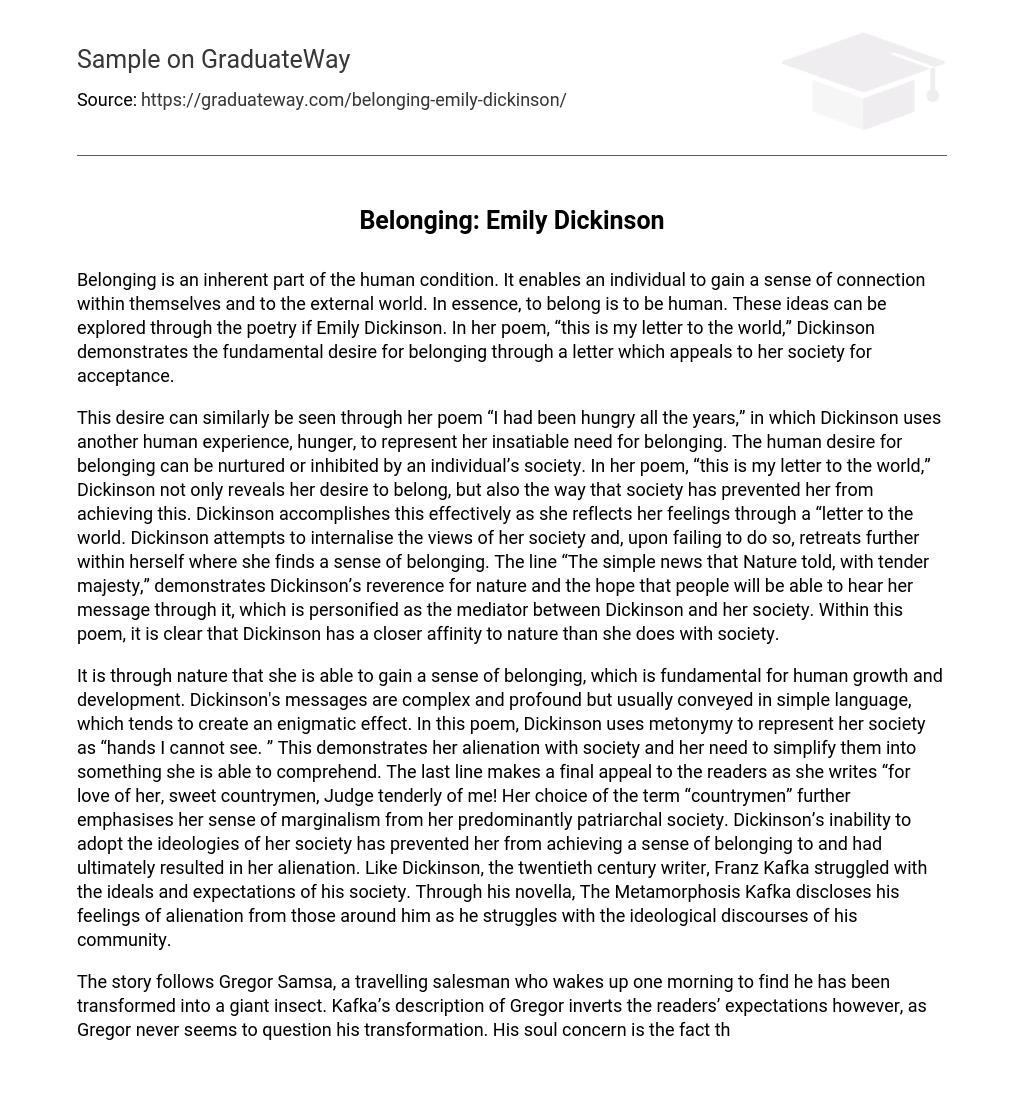In her poem “this is my letter to the world,” Emily Dickinson discusses the essential element of human existence, which is belonging. Belonging enables individuals to form a feeling of connection with themselves and their surroundings. In this poem, she expresses the inherent desire for acceptance and belonging by composing a letter addressed to society.
In her poem “I had been hungry all the years,” Dickinson uses the human experience of hunger to represent her insatiable need for belonging, illustrating how society can nurture or inhibit this desire. Similarly, in “this is my letter to the world,” Dickinson unveils her longing to belong and reveals how society has hindered her. Through her “letter to the world,” Dickinson expresses her feelings, attempting to internalize the views of her society. When this fails, she retreats within herself where she finds a sense of belonging. She holds a deep reverence for nature, hoping that through it, people will hear her message as nature acts as the intermediary between her and society. This poem demonstrates Dickinson’s closer bond with nature compared to society.
Emily Dickinson, the poet, discovers her sense of belonging in nature, which is vital for human growth and development. Despite the profound and complex nature of her messages, she often uses simple language to create a mysterious effect. In this poem, Dickinson employs metonymy to symbolize her society as “hands I cannot see,” expressing her disconnection from it and desire to simplify it into something understandable. The final line of the poem appeals to readers by asking them to “Judge tenderly of me, for love of her, sweet countrymen!” Through using the term “countrymen,” she further emphasizes the feeling of being marginalized in a predominantly patriarchal society. Dickinson’s inability to conform to societal ideologies has prevented her from experiencing a sense of belonging and instead led to alienation. Similarly, Franz Kafka faced challenges with societal expectations and ideals during the twentieth century. In his novella The Metamorphosis, Kafka reveals his feelings of being alienated from those around him as he struggles with his community’s ideological discourses.
In Kafka’s story, Gregor Samsa, a salesman, wakes up one day to discover that he has undergone a strange transformation and turned into a massive insect. What is surprising is that instead of pondering this unusual occurrence, Kafka emphasizes the emotional disconnection between Gregor and his family as the main source of distress for him. By starting the narrative at what would usually be seen as the highest point of tension, Kafka alters the underlying significance of the novella.
Kafka opts to highlight Gregor’s internal metamorphosis as he transitions from his human existence to the life he experiences as a bug. The plain and matter-of-fact manner in which Kafka writes creates a sense of alienation, deviating from the reader’s expectations. The correlation between Metamorphosis and Kafka’s own life demonstrates that the bug symbolizes Kafka himself. In his writings, Kafka frequently referred to himself as “unborn” or inhuman, struggling to accept his own body and viewing it as foreign and disconnected from him.





